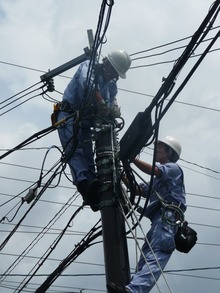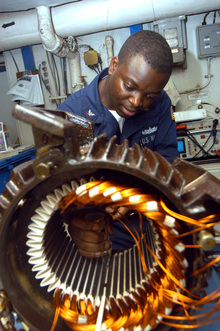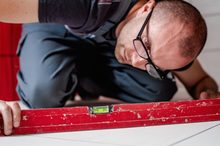Mirroring Your Disks
Computer problems can cause major headaches for your maintenance department. One of the worse is a disk crash: a hardware malfunction which kills the disk that holds all your MainBoss data.
Regular back-ups give insurance against disk crashes, but there's an additional way to protect yourself: mirroring your disks. This means buying a second disk to serve as a mirror (a twin) for the disk that holds your MainBoss data.
When one disk mirrors another, Windows writes the same data to both disks simultaneously. That way, if one disk dies from hardware failure, the other disk is an exact duplicate. It's like having a perfect back-up copy that's always up-to-date.
Mirroring can be done in two ways: with hardware or with software. If you have Windows Server 2003 or Server 2008, Windows itself can automatically perform mirroring. For more information, click the usual Windows Start button, select Help and Support and specify the help topic Mirror. (If you choose to mirror your disks through Windows software, you still have to buy a second disk drive to mirror your original.)
If you don't have a Server version of Windows, you need special hardware to do mirroring. Buying a special add-on card can be pricey, but if you're buying a new computer, getting one with a mirror disk and appropriate mirroring hardware only costs about $150 more than doing without ($100 for the extra disk, $50 extra for a motherboard that supports hardware mirroring). When you're buying this type of system, it is often called RAID 1.
When you consider how much time it takes to restore the contents of an unmirrored disk if something goes wrong, $150 is an extremely good investment. Here at Thinkage, we mirror all disks on every computer we own.
Note: Back-ups are still important, even if you mirror your disks. For example, if you get infected by a computer virus, mirror disks won't help (since both disks get infected simultaneously). Our discussion of back-ups explains more about how to do them and why they're important.




